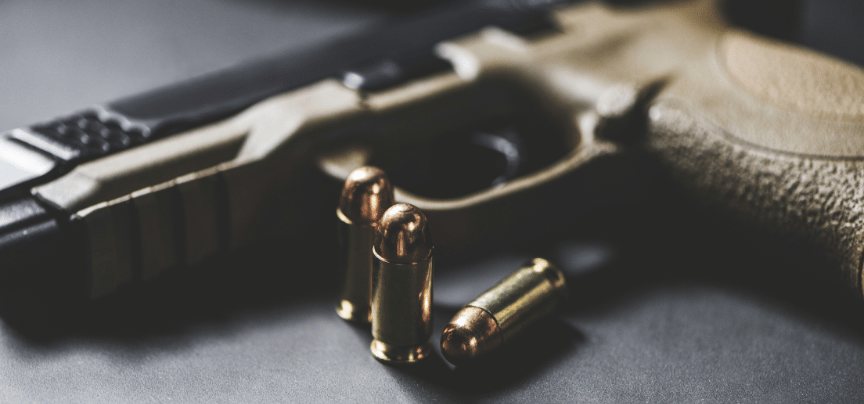
On July 20, 2012, excited patrons gathered at the Century 16 Movie Theater to see the much-anticipated conclusion of a popular movie trilogy.
Within only a few minutes of the opening credits, tear gas filled the auditorium. As the audience attempted to flee, deafening shots rang out at alarming speed.
When the smoke cleared, 70 people were wounded and 12 had lost their lives.
The shooter, James Holmes, wrote extensively on his thoughts leading up to this attack in a journal that he mailed to a former professor in the days leading up to the shooting. As he sat on trial, his thoughts while planning the attack were revealed.
He knew he wanted to kill as many people as possible. At first, he toyed with the idea of an airport strike but quickly decided the security would be too troublesome.
Instead, he chose a movie theater. The Century 16 theater where the Aurora shooting took place displayed a sign prominently on their door that declared their business a gun-free zone.
What is a gun-free zone? Simply put it is a private business, building or entity that prohibits by law or the owner restricts private citizens from carrying a firearm on the premises. The Second Amendment protects the rights of private citizens to own firearms in the privacy of their homes, however, carrying weapons in public and the rules regarding that is mostly left to the state level.
However, after the Federal Gun Free School Zones Act of 1990 and its amendment in 1995, it is a federal offense to be in possession of a firearm on school grounds or within 1,000 feet of the institution, unless you are on private property, the weapon is properly locked away, or the holder is a concealed carry permittee.
In Missouri, if one brings a gun within school grounds, as well as to churches, election day precincts, and government buildings, charges for breaking these rules can lead to a Class E felony when a loaded gun is brought into a school or a Class B misdemeanor for a firearm in other restricted areas.
Other places in Missouri that firearms are generally not permitted in include:
- Bars
- Post offices
- Casinos
- Courthouses
- Airports
- Bus terminals
- Government meeting areas and buildings
- Amusement parks
- Sports arenas and stadiums
- Prisons
- Childcare facilities
- Churches
- Hospitals
- Trains
- Police stations
- Within 25 feet of a polling place
- Anywhere it is posted
If you have a concealed carry license, you will not be charged for breaking these rules in the remaining gun-free zones listed above. Instead, you will just be asked to leave or return your firearm to your vehicle.
Gun-free zones are designed to help people feel safe, but the only safety they’re giving is to the ones who don’t deserve it. Honest, law-abiding folks who would leave their weapons behind when entering one of these zones are the very people we would want armed, not criminals who don’t care about societal rules.
The trouble is that the majority of mass casualty shootings happen in these gun-free zones. In active shooting events, you cannot wait for the police to arrive. Mass shootings generally only last a few minutes, so any lost time can mean irreparable harm or loss of life.
If you concealed carry in your workplace or areas you frequent, think tactically. Take a mental note of exit paths and traffic bottlenecks, just in case you ever have to disarm a criminal threat.
Carrying a firearm is a serious decision that the wise take on thorough training for the safety of themselves and their surroundings. Gun-free zones, outside of a few key areas like schools, churches and government buildings, are not mandated by law, however, they can ask you to leave the premises.
You may feel like a law-abiding citizen by respecting the No Gun Zone signage, but just remember the actions of violent criminals like James Holmes. If a trained, vigilant person with a firearm had been present, maybe that night would have turned out differently.
